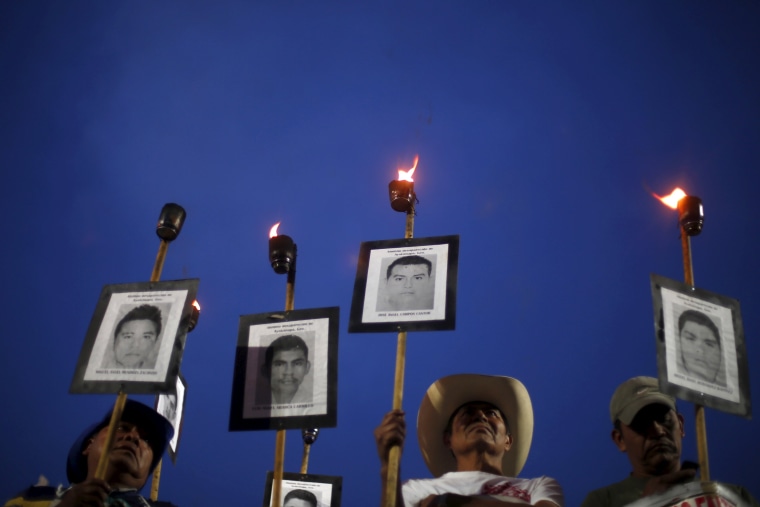In the hours after 43 students at the Ayotzinapa Rural Teachers’ College in Mexico went missing, Carmelo Ramirez Morales sped to the scene where the students were taken away and gave a late-night press conference to local journalists. Then he hid from a hail of bullets. Now he is applying for asylum in Minnesota.
In an interview with Mila Koumpolova, an immigration reporter at the Star Tribune, Morales, 20, shared his story of that night on September 24, 2014, his experience with the local police and the threats he receives for trying to share his story.
Morales said in the interview that several cars, one of which appeared to belong to the police, rolled up to his press conference hours after the students went missing, and men began shooting toward the reporters and students. Morales said he brought someone who had been shot in the face to the local hospital, where army members detained and questioned him for two hours.
RELATED: Activists Rally for Dad of One of Mexico's '43' in NYC Half Marathon
The morning after Morales said he went to the Iguala attorney general’s office to identify the officers involved. After pointing the officers that shot at him, Morales said he walked past them while leaving the office.
Morales is seeking asylum in Minnesota because he has received threatening voicemails directly after returning to Mexico. He will have to prove in his case that he faces an imminent threat of violence if he returns to the country.
The Iguala police have been accused of corruption in how they handled the case. Protesters for the past 20 months have alleged the police handed students over to local drug gang members; the Mexican government says they were then killed and their bodies were incinerated at a trash dump, though inteenational groups have disputed this version of events due to a lack of physical evidence.
RELATED: Moms of Missing Ayotzinapa, Mexico Students Make Pilgrimage to See Pope
The Inter-American Commission on Human Rights expert group released a report April 24 that stated that 17 out of about 110 suspects rounded up by the government who then corroborated the government's version of events showed signs of torture, which would render their testimonies inadmissible in a Mexican court.
Morales has spent the months after the disappearance of his classmates and cousin to criticizingthe Mexican government for their failure to properly investigate what happened to the students after they were taken by local authorities.
“I don’t want people to forget what happened,” Morales said in the interview. “We have to continue fighting and looking for justice.”

